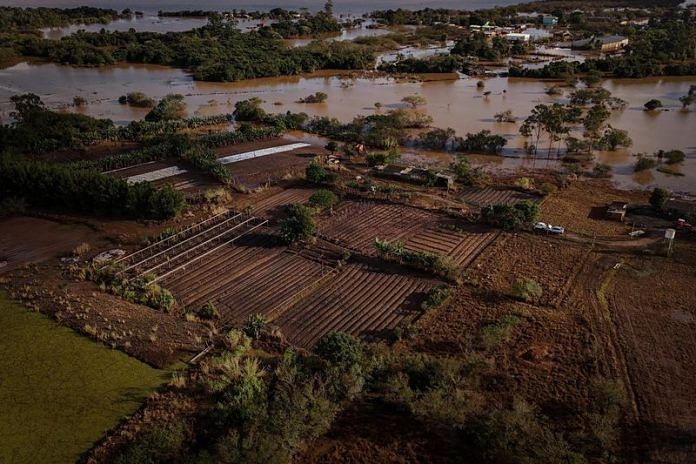By Jake Spring
SAO PAULO (Reuters) – Record floods that killed over 170 people and displaced half a million in southern Brazil are a warning sign of more disasters to come throughout the Americas because of climate change, an official at the United Nations’ refugee agency said on Tuesday.
Roughly 389,000 people in the state of Rio Grande do Sul remain displaced from their homes because of the intense rain and flooding, which local officials say was the worst disaster in the region’s history. Scientists say climate change made the flooding twice as likely to happen.
Andrew Harper, special advisor on climate action to the refugee agency UNHCR, visited a flooded neighborhood in state capital Porto Alegre over the weekend and called it “a ghost town.”
“It was underwater for almost 40 days. There wasn’t even any rats running around. Everything had died,” Harper said in an interview on Tuesday.
Even after the flood waters subsided, residents have not returned to the neighborhood where streets are piled high with water-logged garbage and debris. Many are still living in shelters, including Venezuelan refugees who had resettled in Porto Alegre.
UNHCR is helping the local government to build temporary housing.
Residents of some hard hit areas may never return, having been forced to move by repeated flooding, Harper said. But how many would become so-called climate migrants will only be known years after the disaster.
The floods surpassed all expectations that local authorities had for climate disasters, and governments need to do more to prepare for these events, Harper said.
“We’re seeing the emergence in Brazil of what we may be seeing throughout the Americas. So to ignore this, they do it at their own peril,” Harper said.
Governments need to understand where the people most vulnerable to climate change live, like the neighborhood he visited in Porto Alegre, and include those people in their climate plans, he said.
“It’s a warning signal, but we’ve been seeing warning signals now for five, ten years,” Harper added. “At what point do you basically have to slap somebody in the face and say, ‘Wake up, you’re not going to ignore this.'”
(Reporting by Jake Spring; Additional reporting by Diego Vara in Porto Alegre; Editing by Marguerita Choy)
Disclaimer: This report is auto generated from the Reuters news service. ThePrint holds no responsibilty for its content.



